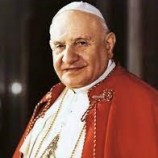
In these loudmouth times of widespread generalizing relativism, one reaches the point of having to admit that “each person holds his own truth.” And we do not always realize that two opposing truths belie each other. At least one of them has to be false.
Cecilia Meireles was aware of this when she said: “Either you have rain and don’t have sun, or you can have the sun and not the rain! You can wear the glove if you do not put on the ring, or you can put on the ring and not wear the glove!”
Despite Cecilia’s poetic lesson – who would address to children for correcting the adults – always when I write something categorically, someone complains that I’m trying to impose my point of view. That, of course, would be an offense to democratic liberty. In the general jelly of bourgeois thought, this kind of thing is defined as quite bothersome…
I’ve been rereading an early 20th century thinker, the Belgian philosopher Joseph Schrijvers, who wrote precisely about our propensity to an enslaved life. Here’s what he says:
“The more a man believes himself to be free, the more he obeys, even if he doesn’t realize it. He is obedient to opinions, customs, fashion trends, his own passions, his needs, be they real or illusory, his imagination and to his own very whims. He obeys his boss and even more to his subordinates; he obeys his fellow men, their manners, their examples and even to their smile.”
Isn’t it curious? Someone smiles to me and right away I feel obliged to smile back. Promptly, I obey…
Schrijvers continues: “Every man, whether he likes it or not, is suggested by the books he reads, by the speeches he hears, by the criticism he suffers and by the compliments he seeks. Thus, most of all men, while believing themselves to be free are in fact not much more than slaves. ”
So then, are there are no free men? They do indeed exist but are very rare. One of them was the philosopher Diogenes, who gave up all of his possessions and reserved himself exclusively to a bottomless barrel, of which served as his home and attire, along with a mere cup for drinking water. One day in the square, he saw a boy who approached the fountain and drank in the hollow of his own hand. Diogenes sprang up, grabbed his cup and threw it far away. He still was not as free as he had thought…
On another occasion, Diogenes was sunning by the roadside while the entourage of Alexander the Great was passing by. Someone warned the Emperor to the presence of the philosopher. Alexander, who appreciated philosophy, dismounted, walked up and asked respectfully if there was anything he could do for Diogenes. To which he replied: “Get out my way, you’re shadowing my sunlight!”
Free men are indeed rare. One was Saint Francis of Assisi, who needs no comments. And of course a most remarkable woman of the twentieth century, Mother Teresa, who left the security of her college, surrounded by delightful and fragrant little girls, to plunge into the filthy slums of Calcutta, where she could serve the beggars, the lepers and abandoned children. In 25 years, Mother Teresa had rounded up about 5,000 followers from across the globe. It appears that freedom attracts people.
Of course, we do not do the same because we are still enslaved…
Related Articles















